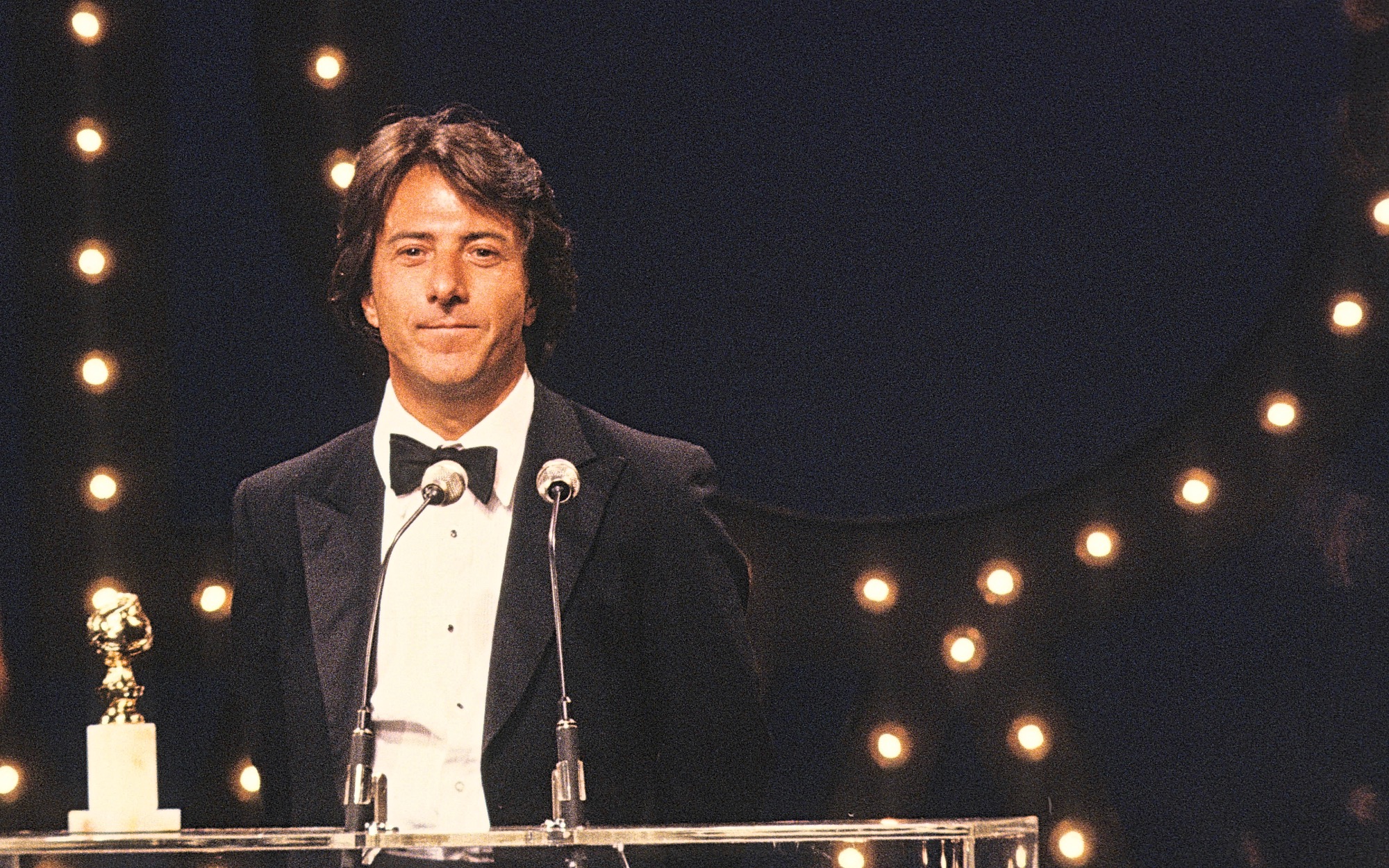
- HFPA
1980: “Kramer vs. Kramer” Reflects an Intersection of Life, Art
“I would like to thank divorce,” said Dustin Hoffman, winner of the Best Actor – Drama Golden Globe for Kramer vs. Kramer, when he accepted the award in 1980 from Lee Remick and Rod Steiger.
Hoffman, then 43 years old, added, “That phenomenon of this latter part of the 20th century, which has somehow created a family in this film that I was part of. I would like to thank all of you who are touched by this film.”
Memorably telling the story of a couple’s divorce and the subsequent evolution of their relationship, writer-director Robert Benton’s film also won Golden Globes for Best Motion Picture – Drama; Best Screenplay, for Benton; and Best Supporting Actress, for Meryl Streep.
The legal drama, which was based on Avery Corman’s novel of the same name, reflected a cultural shift from the 1970s, when ideas about parenthood were changing. Exploring the psychology and fallout of Ted and Joanna Kramer’s divorce and its impact on their young son, the movie touched upon emerging social issues like gender roles, work-life balance, and single parenthood. It was widely praised for giving equal weight and importance to the mother and father’s points of view. The film was also a major critical and commercial success, grossing over $173 million.
Hoffman himself was going through a divorce at the time from actress Anne Byrne, with whom he had a daughter. Hoffman said in an interview with Playboy in 1975, “Giving myself permission not only to be present but to be a father was a kind of epiphany for me at that time… I got closer to being a father by playing a father. That’s very painful to say.”
Hoffman initially turned down the role because, at the time, he wanted to quit film acting and return to the stage. He was the only actor producer Stanley Jaffe and Benton envisioned in the lead role. But, because of Hoffman’s reticence while they were courting him, they also offered the part to James Caan, Al Pacino, and Jon Voight, all of whom turned it down.
Finally, after meeting with Jaffe and Benton in London while shooting Agatha, a convinced Hoffman accepted the role. He later credited Benton and the movie for rejuvenating his love for film acting and reminding him of his love for children.
Streep, for her part, was only 31 when she won her first Golden Globe for the movie. She wasn’t able to make it to the ceremony, so Benton accepted her trophy from presenters Neil Simon and Marsha Mason.
Streep, who went on to win eight more Golden Globes and the Cecil B. deMille Award in 2017, initially thought her character was “too evil,” as she told Karina Longworth in her 2013 book “Meryl Streep: Anatomy of an Actor.” She insisted Joanna wasn’t representative of real women who faced marriage breakdowns and child custody battles. The creators agreed, and the script was revised. Benton also allowed Streep to write her own dialogue in two key scenes.
